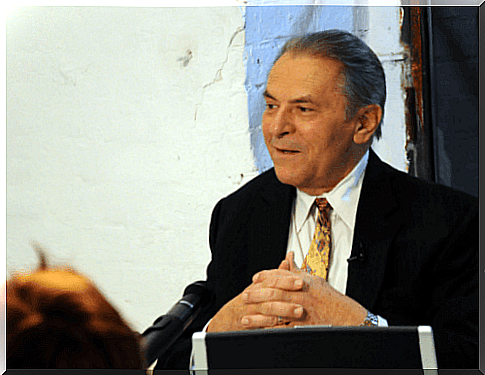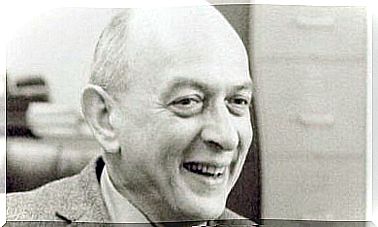Stanislav Grof: His Life And Work

Stanislav Grof is one of the most influential figures in psychology. He has made a name for himself through fascinating research into alternative states of consciousness and holotropic breathwork. He is also one of the founders of one of the biggest trends in recent psychology: transpersonal psychology.
Stanislav Grof was born on July 1, 1931 in Prague, Czech Republic. He studied medicine and psychiatry. He also studied Freudian psychoanalysis for over seven years. He also has more than 50 years of research and clinical practice behind him. Impressive, right?
In this article we are going to talk about a man who studied the mind through psychedelic drugs. We will also summarize his great contributions to psychology.
Stanislav Grof and Transpersonal Psychology
The term transpersonal psychology was coined in 1969, among others by Grof. He collaborated with other researchers such as Jamer Fadiman Miles Vich, Sonya Marguiles and Anthony Sutich. He also collaborated with Abraham Maslow and Ken Wilber. In 1978, Grof founded the International Transpersonal Association .
Grof was convinced that other branches of psychology did not focus sufficiently on spirituality. That’s why he thought we could better understand the human mind through patient-centered research. He proved that spirituality is a legitimate part of our psyche.
Thanks to his clinical experience, his transpersonal psychological research and the contributions of other researchers, psychology is now much broader.

Stanislav Grof and psychedelic drugs
Grof has volunteered to study LSD at the First Faculty of Medicine at Charles University in Prague. This was his first experience with this substance.
Then he began to study all kinds of substances and their effects on the brain. Together with other researchers, he studied psilocybin, LSD and mescaline with a group of 40 people.
They conducted many psychotechnical tests and physical examinations to see if the substances together had specific effects or caused similar conditions. In the words of Grof, they also wanted to see if it caused “an experimental psychosis,” which would help them decipher the mystery of psychosis.
Grof has been doing psychotherapy with psychedelic drugs for twenty years, both in Prague and in the US. However, after the research was banned because of the alleged damage it could cause to chromosomes, he started working at the Esalen Institute. During that time he also wrote his first book.
Holotropic Breathwork
After he started working at the Esalen Institute, he also developed the concept of holotropic breathwork together with Christina Grof. The technique can produce states similar to those of psychedelic drugs.
The word “holotropic” comes from the Greek “holos” (whole) and “trep” (to turn). Holotropic means to move or to aim towards wholeness. It’s a kind of self-examination that involves your conscious mind. It also involves different spiritual traditions.
According to transpersonal psychology, negative symptoms and mental blocks are the result of forgetting or suppressing things. The theory was that we could achieve those things in states of altered consciousness or holotropic states.
Holotropic sessions span many different states of consciousness, sometimes going back to the moment of your birth or even further back in time.

Grof .’s books
Grof has published over 160 books and articles. Here are some of his most interesting books and articles:
- The stormy search for the Self: A guide to personal growth through transformative crisi s. This is a self-help book. In the book, Grof talks about states of consciousness that some cultures see as psychotic. It’s a great example of how complex mental states can be a good thing.
- The holotropic mind: The three levels of human consciousness and how they shape our lives . In this book, Grof talks about his experiences with transpersonal psychotherapy. He also shows how past experiences, mystical experiences, death and rebirth are related. (Appeared in Dutch as Traveling through the mind. )
- LSD Psychotherapy . This book made Grof famous. It is basically a guide to the use of LSD in psychotherapy.
- When the impossible happens: Adventures in non-ordinary realities. This is Grof’s autobiography.
- Beyond the brain: Birth, death, and transcendence in psychotherapy. In this book, Grof covers the basic ideas and benefits of transpersonal psychology. He also questions the therapeutic models of other branches of psychiatry. (Appeared in Dutch as Birth, Death and Transcendence .)
Stanislav Grof is currently a professor of psychology at the California Institute of Integral Studies (CIIS) in San Francisco. He married Brigitte Grof in 2016. They travel the world together giving seminars and workshops on holotropic breathwork to help spread the word of the technique.









